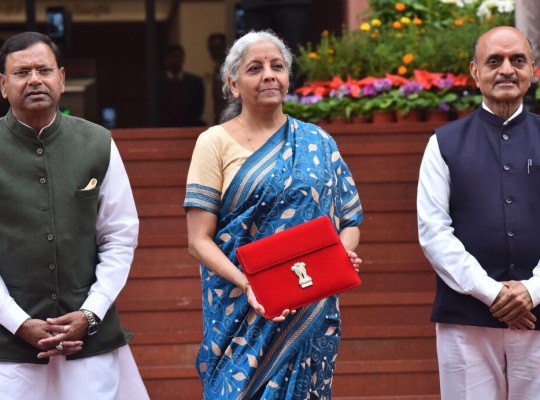The ‘Pradhan Mantri Suryodaya Yojana’ announced by Prime Minister Narendra Modi has been widely welcomed by the solar sector. The scheme targets solar installation on 10 million residential rooftops in a year.
Capt. Ishver Dholakiya, founder and managing director, Goldi Solar, expects an announcement on the fund allocation under this residential rooftop solar scheme, in the interim budget for 2024-25 to be tabled in the Parliament today.
“The Indian government has played a significant role in accelerating the widespread installation of solar power and cultivating awareness regarding the advantages of renewable energy. A recent stride in this direction is the announcement of the Pradhan Mantri Suryodaya Yojana, which is geared towards making solar power accessible to the masses at an affordable rate. With this in mind, the industry awaits the Finance Minister’s announcement in the upcoming interim budget, particularly regarding dedicated funds for the said residential rooftop scheme,” said Capt. Ishver Dholakiya, Founder & Managing Director, Goldi Solar.
Tanmoy Duari, CEO of AXITEC Energy India, calls for increased incentives for MSMEs in the Indian solar manufacturing sector. “In the upcoming budget, there should be increased incentives for MSMEs in the Indian solar manufacturing sector. Currently, the PLI scheme predominantly favors large Indian solar manufacturers. It should also extend its benefits to MSMEs to level the playing field; otherwise, competing with neighboring Asian countries will pose a challenge,” he said.
Electric mobility players want the government to continue incentives and subsidies for manufacturing and purchasing EVs, and offer incentives for developing the charging infrastructure.
Niranjan Nayak, managing director, Delta Electronics India, said, “The electric vehicle (EV) industry in India has gained momentum thanks to the government’s efforts in promoting EV adoption through various initiatives. However, we see untapped potential, and the upcoming budget could further boost the industry’s development.
“Firstly, we expect the government to continue offering incentives and subsidies for manufacturing and purchasing EVs. These measures effectively drive demand and lower upfront costs. Extending these incentives and reducing import duties on EV components can make electric vehicles more affordable for everyone.
“Additionally, a critical focus should be on establishing a widespread charging infrastructure network nationwide. Insufficient charging stations are a concern for potential EV buyers. Allocating budget funds for strategically locating charging stations on highways, in cities, and in residential areas is essential.”
Nayak said the government should also prioritize research and development in the EV sector. Continued investment in advanced technologies, like battery technology and energy storage solutions, is crucial for long-term growth and sustainability. Provisions in the budget supporting innovation and collaboration between industry players and research institutions would be beneficial.
The production-linked incentive scheme for advanced-chemistry battery cells (PLI-ACC Scheme) was launched to boost domestic manufacturing of battery storage for electric vehicles and stationary storage. As players set up battery gigafabs under the scheme, it’s important to develop a complete domestic supply chain.
Nitin Gupta, co-founder and CEO Of Attero Recycling, says, “There is a need for building a robust lithium battery recycling system in India. We need to consider the inclusion of battery recycling within the PLI scheme, which can reduce the export of depleted batteries by promoting domestic enterprises. The government can build a dedicated financial support system to encourage the growth of the circular economy. Critical metals recycling, along with GST rationalization and the implementation of a reverse charge mechanism for e-waste and Li-ion batteries, has the potential to enhance transparency and foster an encouraging recycling environment.”













